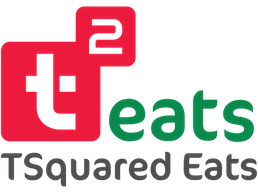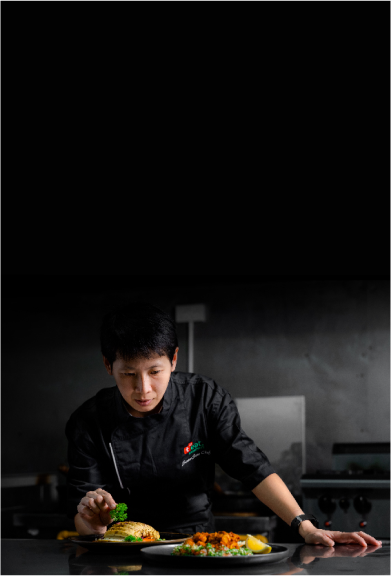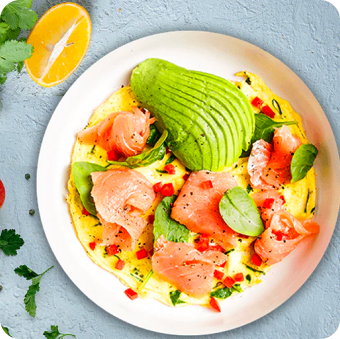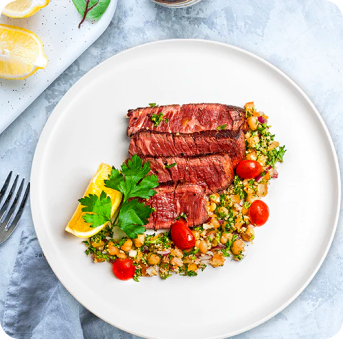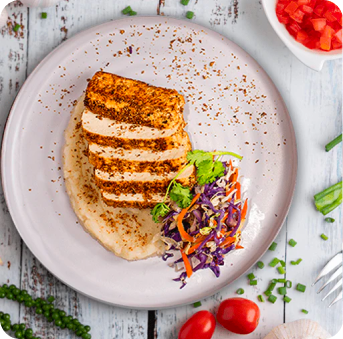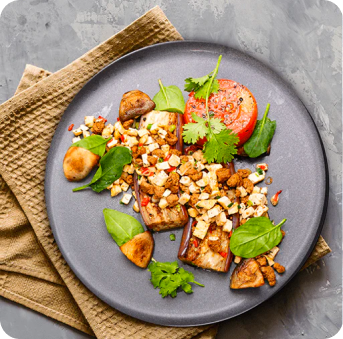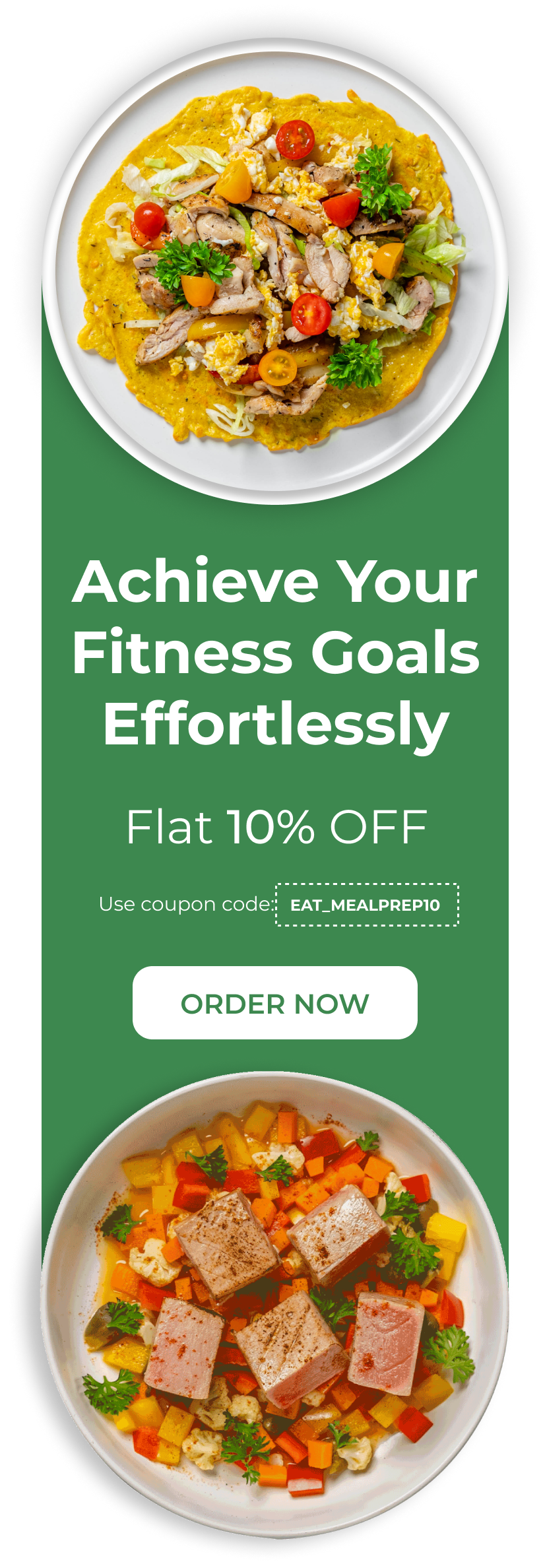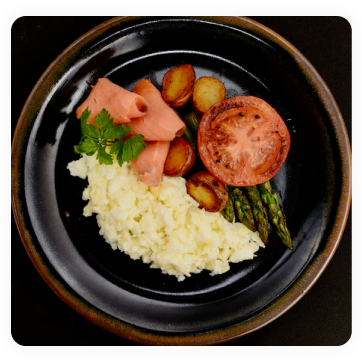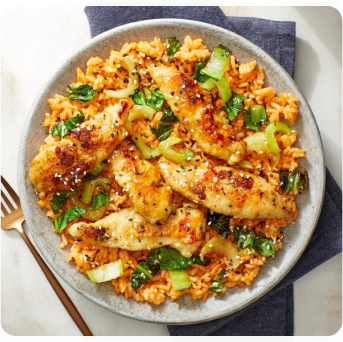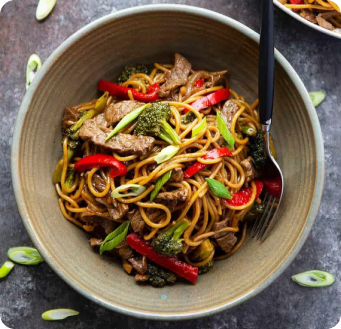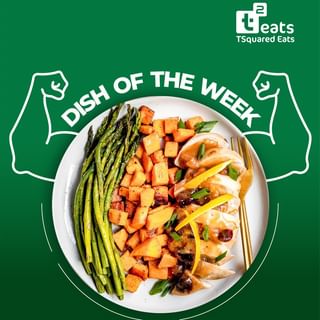How It Works
At TSquared Eats, we have simplified healthy eating with the tastiest meal prep service in Singapore. Choose between 1-week or 2-week plans, with a minimum of 6 meals, designed to suit your schedule and nutritional goals.
01
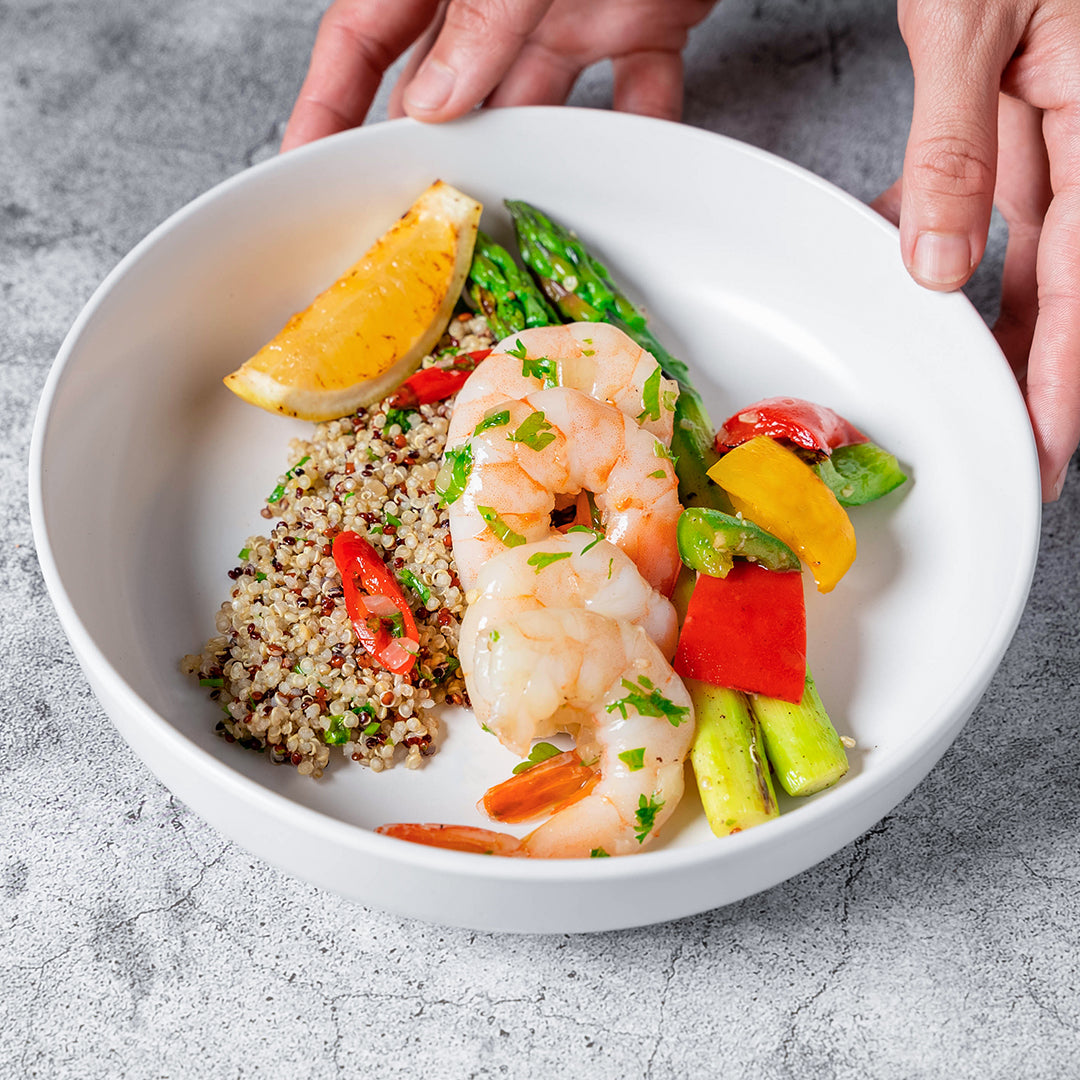
Choose your meal plan that fits your goals and lifestyle, whether it's from our ready-made options or by customising it to suit your preferences.
02
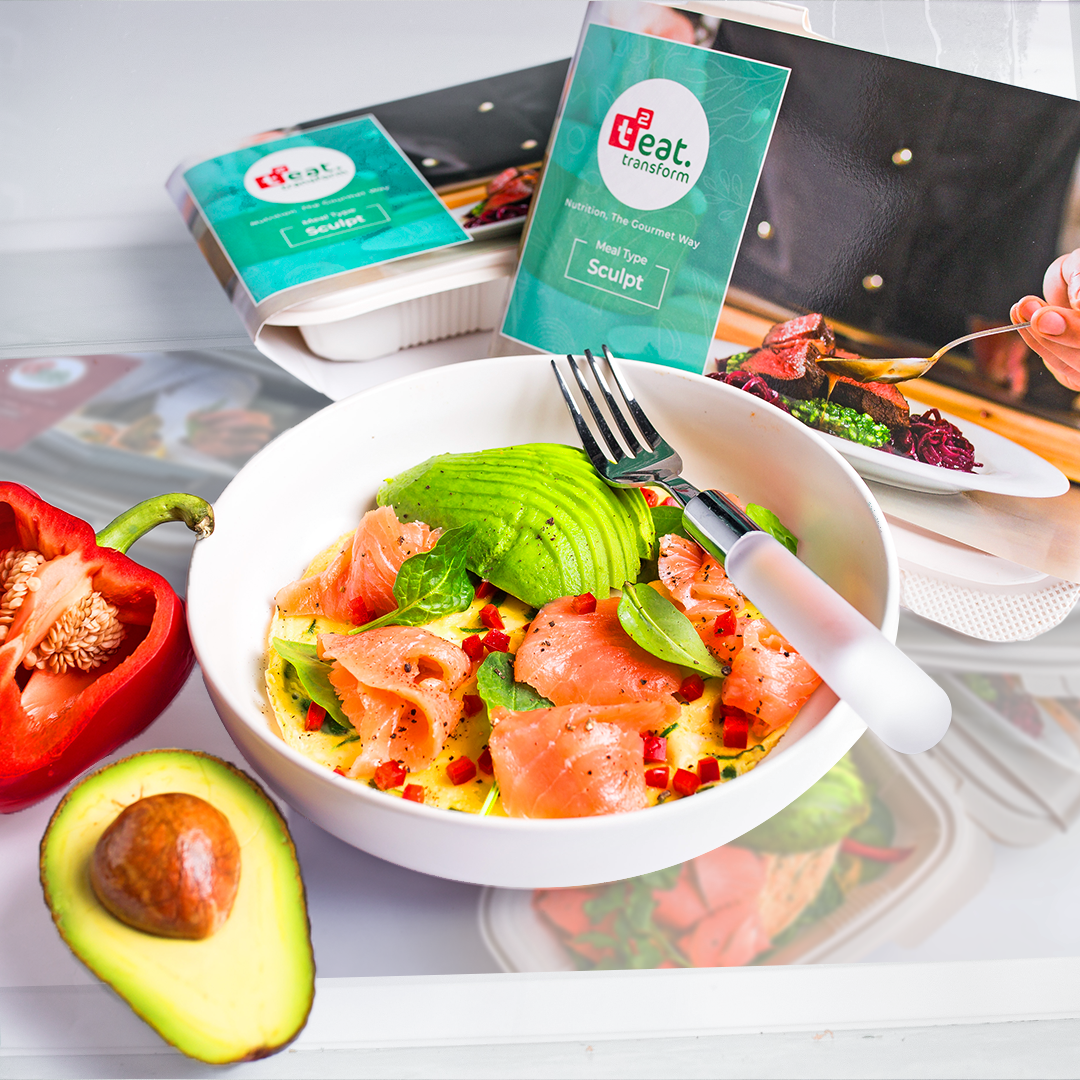
Enjoy the convenience of receiving chef-prepared meals delivered to your doorstep, allowing you to simply unpack and refrigerate for freshness.
03
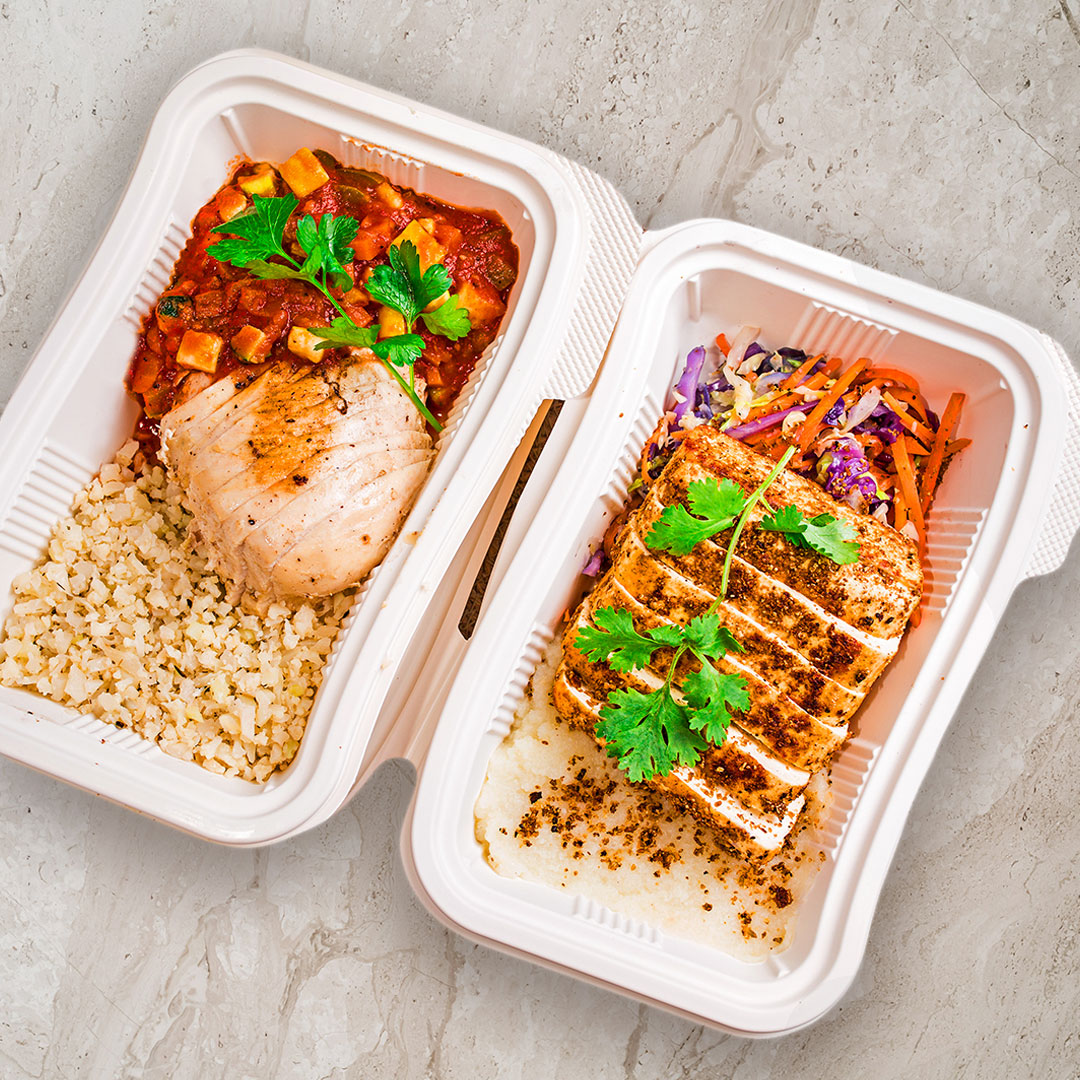
Gourmet, nutrient-rich meals customised to your appetite and nutrition needs. Simply heat and eat when hungry. Ready in 3 minutes.
04

Get diverse, pre-made meals delivered to your door, simply keep repeating your orders for a tasty rotation!
What We Promise


We understand the importance of variety in meals. With TSquared Eats Meal Plan, you'll never experience mealtime monotony.

Our meals are expertly crafted by seasoned chefs who are skilled at their craft and cater to diverse dietary needs while ensuring a delightful experience.

Our meals are carefully curated by our team of nutrition experts who possess a deep understanding of both food and your specific goals.

TSquared Eats meals are crafted with recognizable, real ingredients, arriving at your doorstep chilled, never frozen or vacuum-sealed.
Hear it From Our Clients
"The nutritional contents on the meal box helps me to keep my eating habits in check. I am thankful that TSquared Eats is suitable for my diet, so I can actually eat it with no worries."
Gallery

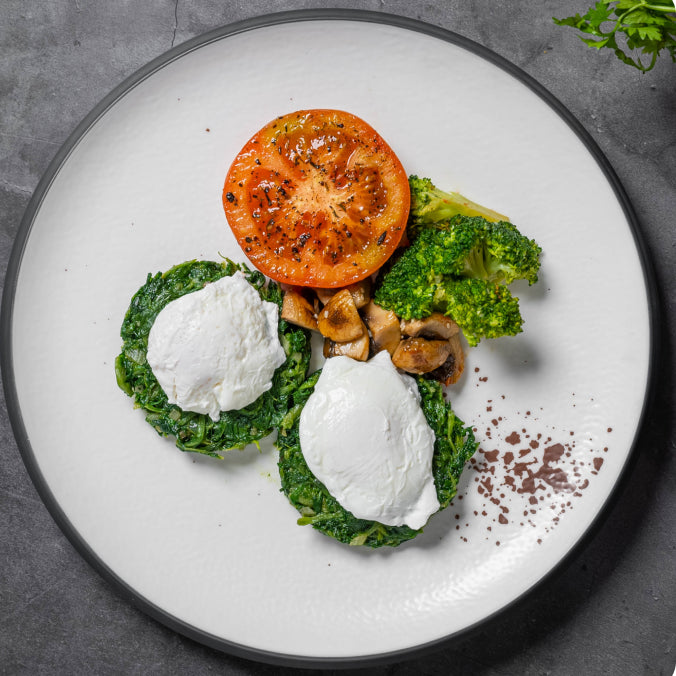



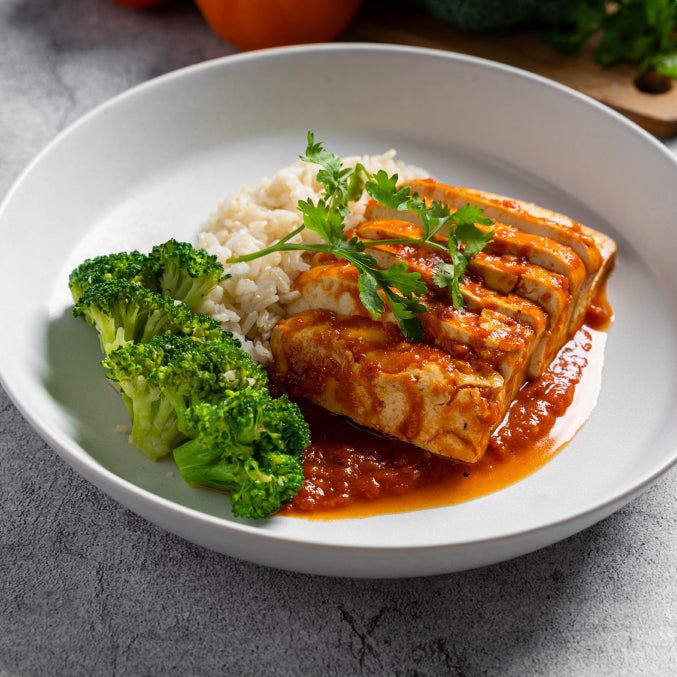
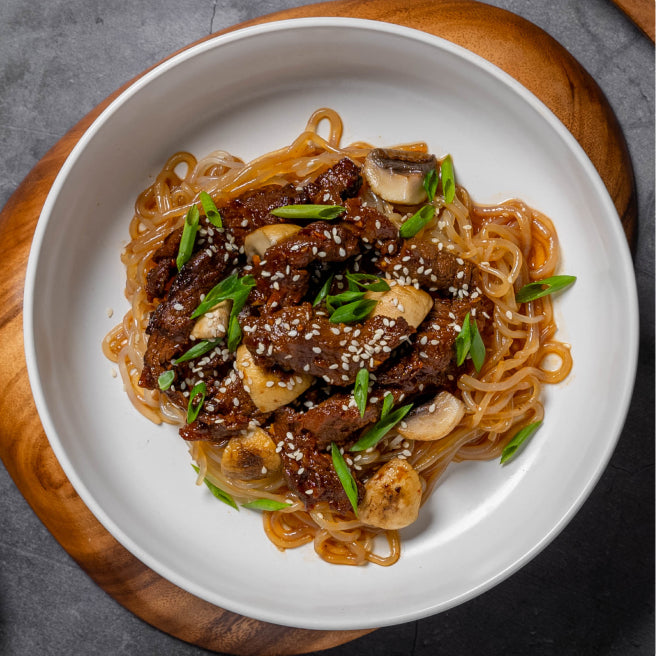
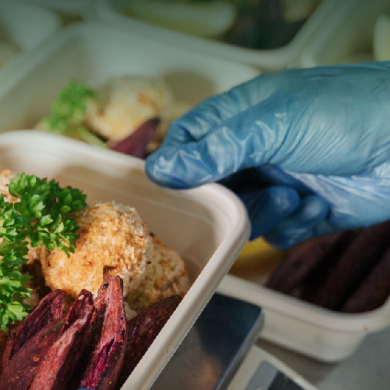
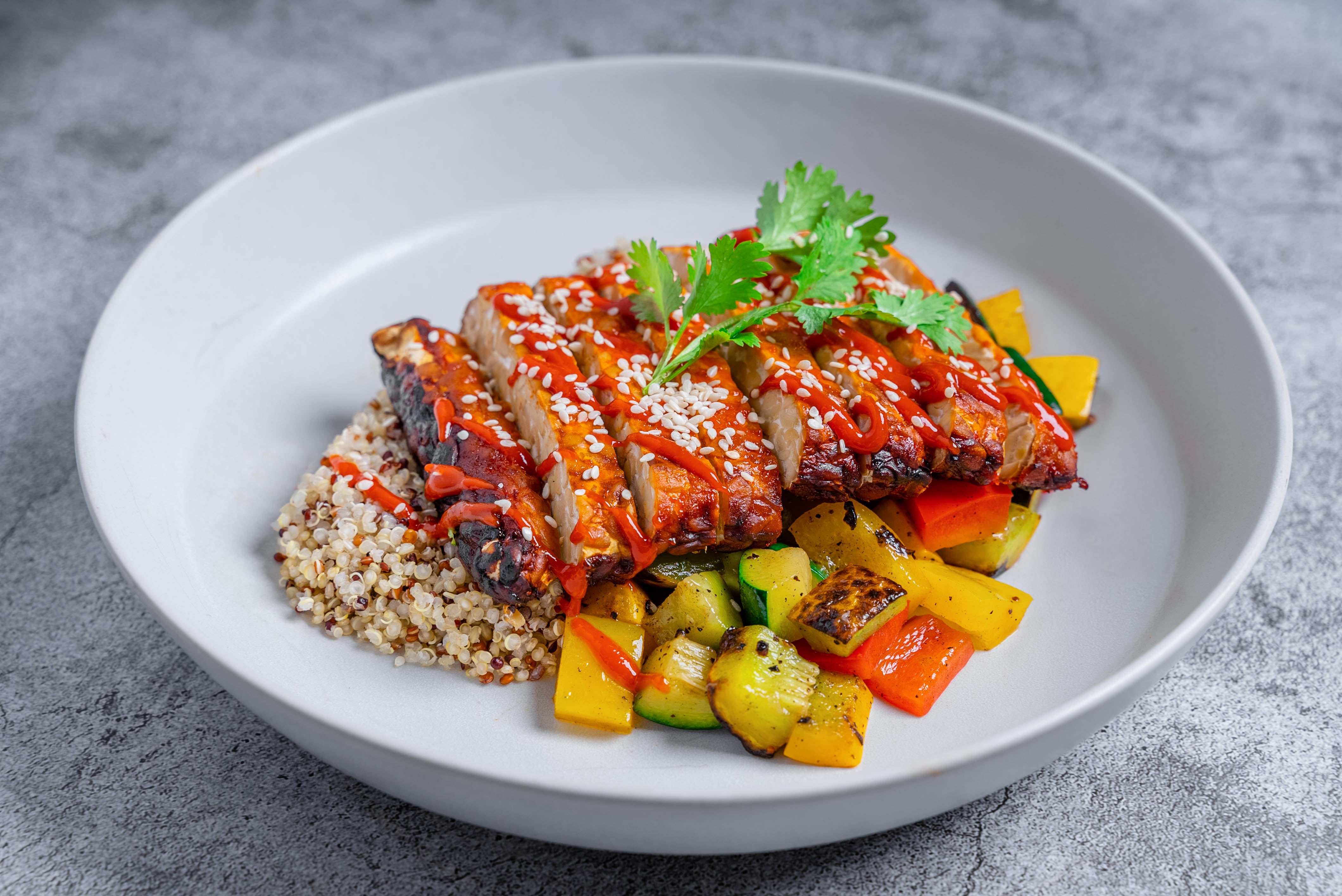



FAQs
How do I sign up and get started?
Then choose your delivery slot, pay and you’re all set! Our cut-off for orders is every Thursday at midnight, so if you're looking to order from Monday onwards, please place your order by Thursday midnight the week before.
What are the meal types and plans offered?
Our meal plans run from Monday to Friday and we offer 3 meals per day – Breakfast, Lunch and Dinner.
You can read more about our plans here.
Each meal plan comes in 3 sizes with average calorie & macro contents as below:
| Meal Plan | Macronutrient distribution | Kcal content per meal | ||
|---|---|---|---|---|
| Regular | Large | XL | ||
| Sculpt | Carbs (25%) Proteins (40%) Fats (35%) |
350 | 450 | 550 |
| Balanced | Carbs (35%) Proteins (35%) Fats (30%) |
400 | 500 | 650 |
| Plant-based | Carbs (35%) Proteins (35%) Fats (30%) |
400 | 500 | 650 |
How many meals do I need to choose?
Our menus run on a two-week cycle. You can choose from 6, 10, 12, or 15 meals for one week, or 12, 20, 24, or 30 meals for two weeks, depending on your preference.
The minimum order is 6 meals per week, and you’re free to mix and match across different days and meal types. There’s no minimum number of meals required per day; you can plan your week exactly the way you like.
Are your meals halal-certified?
We operate a no pork no lard kitchen and all our raw materials are sourced from halal certified suppliers.
We are not halal certified yet but are in the process of submitting the required documentation to the authorities.
Where are your meals prepared and what is the shelf life?
Our meals are prepared using only the freshest and locally sourced ingredients by trained and expert chefs at our dedicated Production Kitchen Facility in the North-East.
We handle everything ourselves, from menu planning and nutrient analysis to sourcing, preparation, and packaging, to make sure you receive only the best meals.
Each meal is clearly labeled with accurate information about the ingredients, allergens (if any), and macronutrients.
Our meals are blast chilled, never frozen, so we give a "consume by" date one day after the intended date of consumption. Please note that the meals need to be kept refrigerated at your location to ensure long shelf life.
Can I customize my meals?
In case you have any dietary restrictions (e.g. no beef or no prawn etc.) you can opt for our Custom Menu, where you can substitute the meals you do not want, with plant-based options.
Please let us know if you have any allergen restrictions (e.g., allergic to allium, gluten-free, etc.) in advance and we will do our best to accommodate you. We will, however, notify you if certain ingredients are integral to certain menu options, in which case you will be advised to choose an alternate meal.
How are the meals delivered?
We do islandwide delivery, including Sentosa. However, we do not deliver to controlled areas such as Jurong Island, airports, and prison camps.
You will receive your meals chilled and will need to reheat them before eating.
Delivery is done in two slots that you can choose from, before checking out:
- Evening Delivery Meals are delivered on Sunday, Tuesday, and Thursday between 6.30 pm - 9.30 pm.
- Morning Delivery Meals are delivered on Monday, Wednesday, and Friday between 7.00 am - 10.30 am.
Because of the route-dependent nature of delivery times, we cannot commit to any specific delivery times but will make every effort to stick to the scheduled delivery window, subject to traffic and other conditions.
Should you not be at home at the time of delivery, we will leave the food outside your door. In the event that access to your location is restricted and we cannot reach you, a re-delivery fee will apply.
Please give us at least 24 hours’ notice if you need to make any changes to your delivery schedule so we can accommodate your needs.
For any other query, doubt, or clarification, you can contact our Customer Service Team at eat@tsquaredlab.com or via WhatsApp at +65 8669 2593.
